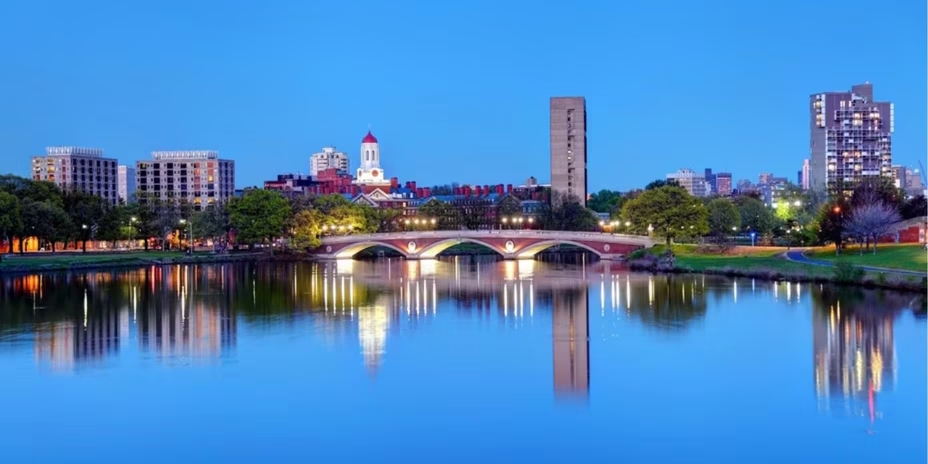Fallout from President Donald Trump‘s crackdown on federal funding for Harvard University could soon be felt in the surrounding real estate market of Cambridge, MA.
Since last month, the Trump administration has frozen about $3 billion in grants and contracts with Harvard, including in a letter this week ordering federal agencies to cancel any remaining contracts with the university.
Trump, who accuses Harvard of fostering a “woke” ideology and antisemitism on campus, has threatened to redistribute the funds to trade schools, turning his Harvard crackdown into a class war pitting blue-collar workers against Ivy League elites.
Harvard is a powerful economic engine for the Boston metro area, powering an ecosystem of biotech startups and drawing highly educated researchers and entrepreneurs from around the world.
Now, Trump’s fight with the university threatens to spill over into the local economy, as people connected with Harvard pull back on spending or rethink plans to relocate to the area.
Some homebuyers are already backing out of deals, including one international buyer who recently walked away from a $10,000 deposit after winning a bidding war, says Sage Jankowitz, a solo broker in Cambridge.
“It’s very unusual in my experience for someone to put down a $10,000 offer deposit and then back out,” he says. “I do wonder if they are seeing the news of what’s going on [at] Harvard, and getting a little nervous, because this property was fairly close to Harvard.”
Another reason for concern at Harvard is Trump’s recent attempt to block the university from enrolling any foreign students, a move that is currently tied up in court.
Harvard has nearly 7,000 international students, representing over 25% of its total enrollment. Many of them are enrolled in graduate programs, a population that drives a thriving rental market in the college town.
“These people are mostly in their 30s or 40s,” says Jankowitz, who works with multifamily investors as well as traditional homebuyers and sellers. “A lot of them are married. A lot of them have one kid or multiple kids, that come with them while they’re here.”
Jankowitz says that one rental tenant in a unit he helps manage, a Harvard doctoral student from Korea, is now in a bind trying to figure out whether to renew his lease, after federal funding to his program was slashed.
“His family, his wife, and his small child, they had agreed to renew the lease for another year, and then the news broke, and so now he’s in a holding pattern,” he says.
Still, the Boston housing market has been among the hottest in the nation for years, and any fallout from federal cuts at Harvard would likely be seen in the form of a slowdown rather than a crash.
“The fiercely competitive Boston housing market continues to see low inventory and high buyer demand, resulting in a snappy market pace and persistent home price growth,” says Realtor.com® senior economic research analyst Hannah Jones. “Renters and homebuyers face high prices in Boston, which has pushed some households farther afield in search of affordability.”
In April, the median list price of homes for sale in the Boston metro area was $878,000, roughly unchanged from a year earlier. Median asking rent in the Boston metro was $2,968, also little changed from a year ago.
Cambridge, the area immediately adjacent to Harvard, is a more expensive subset of the market, with the typical home in Cambridge listing at $1.6 million last month, similar to a year ago.
“Anything that reduces buyer or renter demand, such as funding cuts or student visa bans, which impact local university enrollment, could soften the Boston housing market,” says Jones. “However, in the short term, the impact would likely be isolated to the areas immediately surrounding the metro area’s universities.
“Further down the line, the Boston market could see more of an impact if job opportunities leave the area as a result of the proposed changes,” adds Jones.
Realtor.com
MAY 30, 2025





